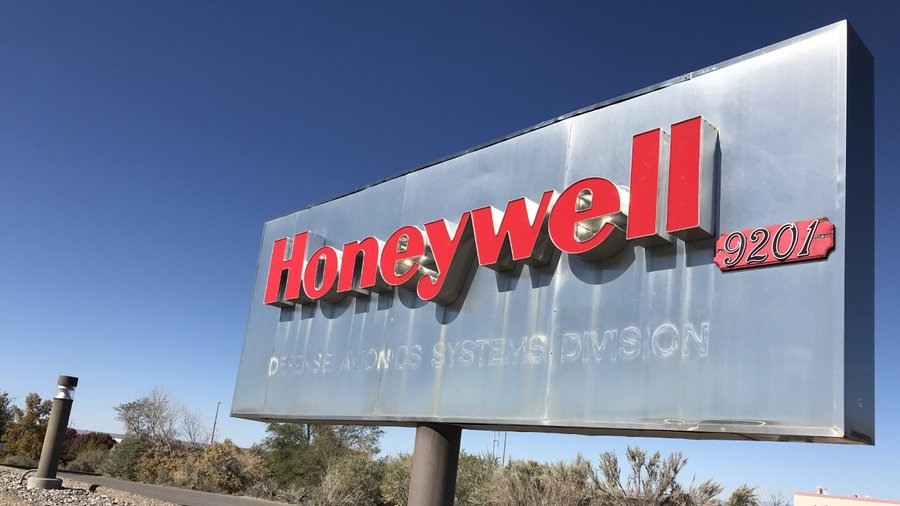Honeywell Layoffs Reflect Larger Trends in the Aerospace Industry

Introduction to Honeywell and its recent layoffs
Welcome to the turbulent skies of the aerospace industry, where even giants like Honeywell feel pressure. As we delve into the recent layoffs at Honeywell Layoffs buckle up for a journey through how COVID-19 turbulence has shaken this sector to its core. Join us as we explore the challenges, trends, and potential solutions in this ever-evolving landscape of aerospace engineering.
Reasons for the Layoffs: Impact of COVID-19 on the Aerospace Industry
The aerospace industry, once soaring to new heights, has faced turbulent times due to the unprecedented impact of COVID-19. As global travel restrictions were enforced and demand plummeted, companies like Honeywell Layoffs had to make tough decisions to navigate these challenging times.
With airlines grounding fleets and passenger traffic dwindling, the need for new aircraft and aerospace technologies has remained relatively high. This drop in demand caused a ripple effect throughout the industry, leading to production cuts and workforce reductions at significant players like Honeywell Layoffs.
As uncertainty looms about when air travel will fully recover, companies must adapt their strategies to survive in this new landscape. The Pandemic has accelerated the need for innovation and efficiency in operations as organizations strive to stay competitive amidst ongoing challenges.
In such a dynamic environment, resilience and flexibility have become crucial for companies looking towards a post-COVID future in the aerospace sector. By embracing digital transformation and diversifying their portfolios, firms can position themselves for long-term sustainability despite current setbacks.
How the Pandemic has Affected the Aerospace Industry
The COVID-19 pandemic has caused unprecedented disruptions in the aerospace industry. With travel restrictions and reduced passenger demand, airlines have cut back on flights, leading to decreased aircraft orders. This domino effect has impacted aerospace manufacturers like Honeywell Layoffs forcing them to make difficult decisions such as layoffs.
Moreover, the slowdown in global economic activity has also affected the demand for new aircraft and aviation technologies. As a result, companies need help maintaining their production levels and revenue streams. The uncertainty surrounding air travel recovery further complicates the situation for businesses operating in this sector.
Furthermore, supply chain disruptions due to lockdowns and border closures have added another layer of complexity to an already strained industry. Honeywell Layoffs Companies are reevaluating their operations and implementing cost-cutting measures to weather the storm brought about by the Pandemic.
Other Major Companies in the Aerospace Industry That Have Experienced Honeywell Layoffs
The aerospace industry has faced significant challenges in recent years, with several major companies being forced to implement layoffs due to various factors. Companies like Boeing and Airbus have also felt the impact of the COVID-19 pandemic on their operations, leading to workforce reductions.
Boeing, a key player in the aerospace sector, Honeywell Layoffs as part of its cost-cutting measures amidst decreased demand for commercial aircraft. Similarly, Airbus had to make difficult decisions regarding job cuts in response to the global economic downturn caused by the Pandemic.
These Honeywell Layoffs affect employees and underscore the broader struggles within the industry. As companies navigate uncertain times and shifting market dynamics, they must make tough choices to ensure long-term sustainability and resilience.
Looking ahead, it will be crucial for aerospace companies to innovate and adapt their strategies to weather these challenging times and emerge stronger on the other side.
Challenges Facing the Industry in a Post-COVID World
Numerous challenges loom as the aerospace industry navigates through the aftermath of COVID-19. One significant hurdle is the slow recovery in air travel demand, leading to reduced orders for new aircraft and aftermarket services. This decline has a ripple effect on companies like Honeywell Layoffs forcing them to make tough decisions such as layoffs to adapt to the shrinking market.
Moreover, supply chain disruptions caused by the Pandemic have exposed vulnerabilities in global manufacturing networks, impacting production timelines and increasing costs for aerospace companies. The need for enhanced safety measures and health protocols adds another layer of complexity to operations, requiring investments in technology and training.
Additionally, uncertainties surrounding government regulations and policies post-pandemic create further challenges for companies looking to rebuild their businesses sustainably. Navigating these obstacles will require innovative solutions, strategic partnerships, and a resilient mindset from industry players determined to thrive in this new landscape.
Potential Solutions and Strategies for Companies to Survive and Thrive in This Climate
As the aerospace industry faces unprecedented challenges due to the impact of COVID-19, companies like Honeywell Layoffs are exploring various strategies to survive and thrive in this new climate. One key solution is diversification – companies can reduce their reliance on traditional aerospace revenue streams by expanding into adjacent markets or investing in emerging technologies. Collaboration and partnerships with other industry players can lead to shared resources and innovation.
Moreover, prioritizing cost-efficiency and operational optimization is crucial for long-term sustainability. This may involve streamlining processes, reevaluating supply chains, and leveraging data analytics for informed decision-making. Investing in research and development for sustainable aviation solutions can position companies as leaders in an evolving market focused on environmental responsibility.
Embracing digital transformation through automation, artificial intelligence, and advanced manufacturing techniques can enhance productivity and competitiveness. Additionally, upskilling employees to adapt to changing technological demands is essential for staying ahead in a rapidly evolving landscape. By proactively embracing change and innovation, aerospace companies have the potential to weather the current storm and pave the way for a brighter future post-COVID-19.
Conclusion: The Future of the Aerospace Industry and Its Job
As the aerospace industry continues to navigate the challenges brought on by the COVID-19 pandemic, companies like Honeywell Layoffs make tough decisions to adapt to the new normal. Layoffs have become a regrettable reality for many in this sector, reflecting more significant trends reshaping the industry.
Looking ahead, it is clear that recovery will take time and require innovative strategies from companies to survive and thrive in this climate. The future of the aerospace industry hinges on embracing change, investing in new technologies, diversifying revenue streams, and prioritizing employee well-being.
While uncertainty persists, there is no doubt that resilience and adaptability will be critical traits for businesses and aerospace professionals. The industry can emerge stronger by staying agile and proactive in addressing evolving market demands.
As we move into uncharted territory, one thing remains certain – with determination and strategic planning, the aerospace industry will rise above these challenges to soar toward a brighter future.





